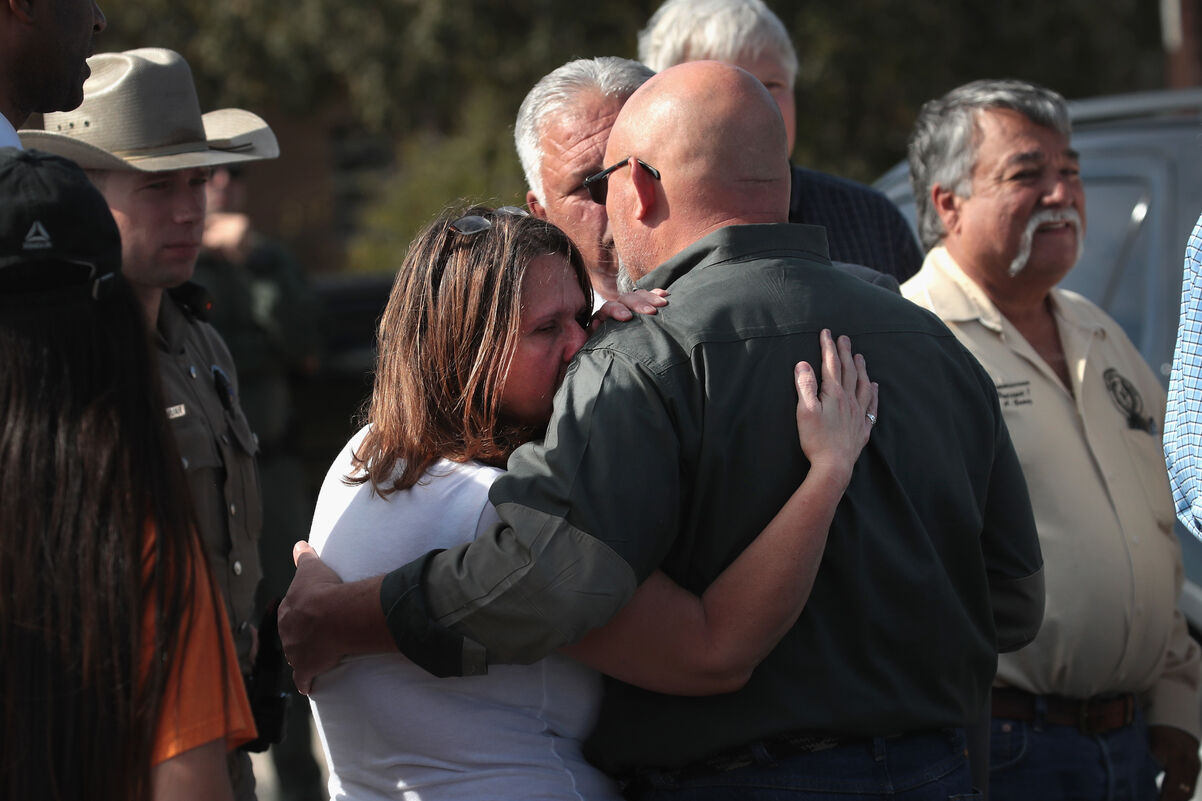The violence that erupted in Texas on Sunday morning is a sight that has become all-too familiar in recent years. Twenty-six people were murdered after a shooter opened fire on First Baptist Church in Sutherland Springs. Police say that nearly half of the victims were children.
Devin Patrick Kelley, a 26-year-old veteran of the U.S. Air Force, arrived at the church shortly after weekly services began at 11 a.m. Kelley carried with him a Ruger AR-556, described as a cousin to the AR-15 rifle commonly employed by mass shooters. The assailant fired upon nearly every member of the congregation, reportedly taking the life of the pastor’s 14-year-old daughter and an entire family who had gathered for mass.
Their names were not made publicly available at the time of publication.
The shooter’s motives are unknown. But like an estimated 52 percent of mass shooters, Kelley has a history of domestic violence: He was court-martialed in 2012 after Kelly was alleged to have assaulted his wife and their child. He would receive a “bad conduct” discharge two years later. That penalty would result in two reductions of rank, as well as 12 months in confinement.
Prior to the shooting, Kelley reportedly sent threatening text messages to his mother-in-law, who frequently attended First Baptist Church. She was not present during the attack.
In a speech delivered during a five-day tour of Asia, President Donald Trump cited mental illness as the cause of the shooting, which is the deadliest massacre in the state’s history. The POTUS claimed that the violence was not “a guns situation,” referring to Kelley as a “very deranged individual.”
Texas Gov. Greg Abbott called the shooter’s actions “pure evil.”
At least 20 people remain in the hospital as a result of the Nov. 5 attack, which is the most violent shooting since a gunman opened fire on a crowd attending a country music festival in Las Vegas this October. Those incidents, which took place within five weeks of each other, are two of the five most lethal shootings in U.S. history.
The other tragedies which hold the dubious honor of ranking in the top five include the 2007 Virginia Tech shooting, in which 32 people were killed; the 2012 Sandy Hook shooting, which left 32 people dead; and last year’s Pulse shooting, resulting in the death of 49 people.
At the time, the June 12 attack on an Orlando gay bar was the deadliest mass shooting ever.
Police estimate that the Sutherland Springs attack wiped out nearly four percent of the small town’s population, which numbers just over 300 people. Kelley died as a result of self-inflicted gunshot wounds following the shooting.
Photography: Scott Olson/Getty Images
Don't forget to share:
Help make sure LGBTQ+ stories are being told...
We can't rely on mainstream media to tell our stories. That's why we don't lock our articles behind a paywall. Will you support our mission with a contribution today?
Cancel anytime · Proudly LGBTQ+ owned and operated
Read More in Impact
The Latest on INTO
Subscribe to get a twice-weekly dose of queer news, updates, and insights from the INTO team.
in Your Inbox













